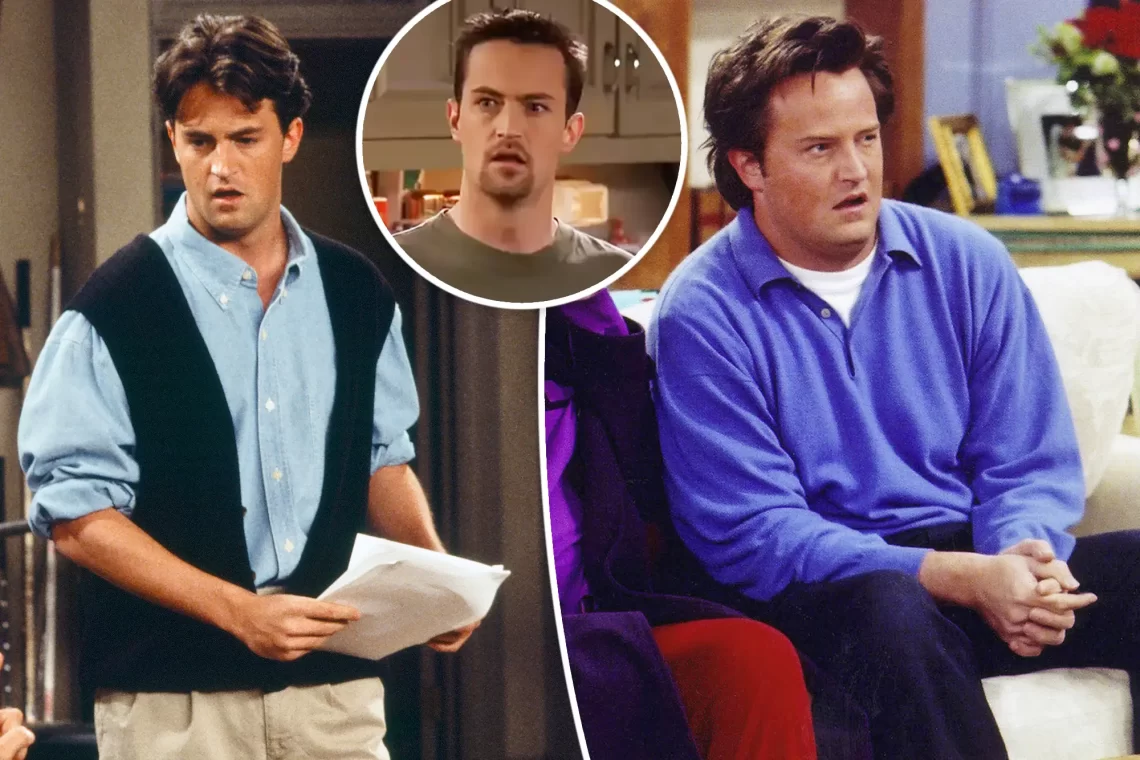By: Amelia Barton
Last year, Friends actor Matthew Perry was found dead in his hot tub.[1] At the time, Perry was being treated with ketamine for depression, so foul play was not at the forefront of the conversation.[2] Now, “the arrest of five people including medical doctors, Perry’s assistant and an alleged dealer” has changed the conversation.[3]
Perry struggled with substance abuse throughout movie and television production.[4] More specifically, Perry wrote in his 2022 memoir, Friends, Lovers, and the Big Terrible Thing, that while on set of Serving Sara (2002), he apologized to the cast and crew because he was drunk on set and his lines were slurred.[5] He ended up rerecording lines to make amends as a part of his AA.[6] However, Perry was sued for the movie’s shutdown, even though addiction is a medical issue.[7] He ended up coughing up $650,000 to the production after mediation.[8]
Matthew Perry’s death investigation has reinvigorated the conversation around mental health in the entertainment industry. For instance, why was Perry allowed to continue the movie contract when he was struggling with a mental health condition? Did this contribute to his depression later in life? If so, can the production companies that hired Perry and allowed him to work while struggling with addiction, like the company that filmed Serving Sara, be held liable for his decreasing mental health? These questions have yet to be directly addressed.
According to the United States Department of Labor, the Family and Medical Leave Act (FMLA) provides that “employers must provide up to 12 weeks of job-protected leave to eligible employees.” [9] Federal law requires that employees with mental health conditions must be protected against harassment and discrimination in the workplace.[10] Employees “have a legal right to reasonable accommodations” and a right to confidentiality.[11] Finally, the Mental Health Parity and Addiction Equity Act (MHPAEA) requires that “health benefit plans that cover mental health or substance use benefits cannot impose more restrictions on those benefits than what generally applies to comparable medical or surgical benefits.” [12]
There is question as to whether these provisions would apply to the entertainment industry. In copyright disputes, artists, like actors, are third-party contractors rather than employees.[13] In its 1989 decision, the Supreme Court found that a sculptor was not an employee of a non-profit that commissioned him to make a sculptor because he provided his own tools, worked in his studio, decided his schedule, was retained for a short period of time, and did not receive employee benefits.[14] Similarly, actors pay for their own training, manage their own schedule and auditions, hire their own managers, are retained for short periods of time, and do not receive benefits from those that hire them.
The Screen Actors Guild-American Federation of Television and Radio Artists (“SAG-AFTRA”) is a large union within the entertainment industry that helps actors negotiate contracts and advocate for legislation – not an employer.[15] Additionally, SAG-AFTRA provides health insurance for its members that provides mental health and substance use disorder benefits.[16] This is covered under both the hospital benefit and medical benefit portions of the health insurance policy.[17] Producers must contribute to benefits when they are working with SAG-affiliated actors.[18] The Entertainment Community Fund also provides mental health services to members of SAG-AFTRA.[19] Among those services are support groups led by social workers.[20]
The above authorities leave a big question mark as to who within the entertainment industry is responsible for overseeing and accommodating actors’ mental health. As of right now, the only one of the five people arrested for Perry’s death is linked the entertainment industry.[21] That person is his assistant because he injected Perry with ketamine.[22]
Although the production companies of Perry’s past did not have hands-on involvement with his ketamine use, these companies should be held accountable for allowing Perry to work while in the thick of his addiction. Perry should have been given ample time to recover before returning to set. Safeguards should be in place to prevent issues like this from occurring.
However, there is the competing interest of the production’s funding and timeline. Perhaps there is a way for companies to move on without the actor that is struggling, or a way to work around the actor’s temporary absence from production.
[1] Christal Hayes, ‘Ketamine Queen’ and cover-ups: What we learned from the Matthew Perry investigation, BBC (Aug. 15, 2024), https://www.bbc.com/ [https://perma.cc/UWX5-5NE2].
[2] Id.
[3] Id.
[4] Matthew Perry, Friends, Lovers, and the Big Terrible Thing 210 (2022).
[5] Id.
[6] Id.
[7] Id.
[8] Id.
[9] Mental Health at Work, U.S. Dep’t of Lab., https://www.dol.gov/[https://perma.cc/TE2L-GSKV].
[10] Id.
[11] U.S. Dep’t of Lab., supra note 8.
[12] Id.
[13] Cmty. for Creative Non-Violence v. Reid, 490 U.S. 730, 752 (1989).
[14] Id. at 752-53.
[15] About SAG-AFTRA, SAG-AFTRA (2024), https://www.sagaftra.org/ [https://perma.cc/KFX7-XAR7].
[16] 2024 Benefits Summary, SAG-AFTRA Health Plan (2022), https://www.sagaftraplans.org/ [https://perma.cc/N44W-YAWE].
[17] Id.
[18] Paying SAG-AFTRA Residuals & Health and Pension Under the Commercials Contract, CMS Prod., https://www.cmsproductions.com/ [https://perma.cc/T58R-UXM9].
[19] The Entertainment Community Fund Offers Mental Health Services, SAG-AFTRA (Apr. 26, 2024), https://www.sagaftra.org/ [https://perma.cc/C72J-JQEG].
[20] Id.
[21] Hayes, supra note 1.
[22] Id.





